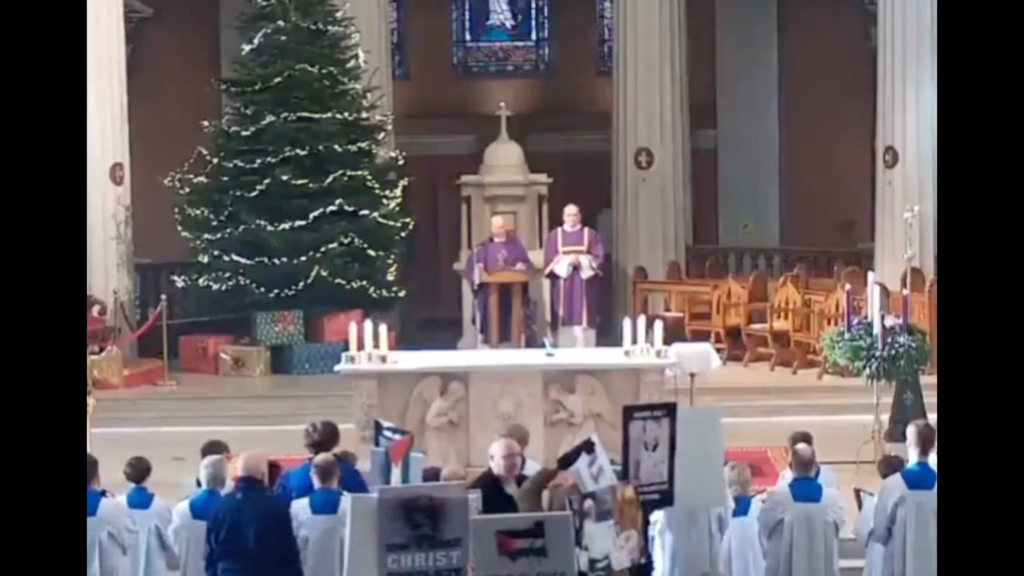In recent weeks, tensions surrounding terrorist activities and protests related to the Israel-Palestine conflict have escalated sharply in Europe, particularly following a tragic terrorist attack in Germany and subsequent disruptions in Ireland. The incident in Germany saw a 50-year-old man from Saudi Arabia deliberately plough through a Christmas market in Magdeburg, resulting in at least five fatalities and over 200 injuries. This devastating attack took place just days before pro-Hamas protesters stormed St. Mary’s Pro Cathedral in Dublin during a church service, seizing on the escalating situation in Gaza as a perceived justification for their actions.
During the disruption of mass at St. Mary’s Pro Cathedral, left-wing extremist groups, branded “anti-Catholic thugs” in some reports, utilized the context of the Gaza conflict to stage their protest. Despite the tragic context of their demonstration, the timing was criticized as highly inappropriate, especially given that a Cardinal was in Gaza distributing presents at the same time. The protests, described in news reports as lacking credibility, underscore a rising trend of aggressive actions against places of worship amidst broader socio-political stresses.
The media’s reticence to report on attacks against Christianity in Europe stands in stark contrast to the extensive coverage often afforded to similar hostile actions against Islamic institutions. Critics have pointed out the inconsistent narrative surrounding religious intolerance, questioning how the international media would have reacted if Christian demonstrators had stormed a mosque to push a political agenda. This silence raises concerns about how religious and cultural conflicts are portrayed in the current media landscape, especially in an era marked by heightened sensitivity to issues of radicalism and discrimination.
Adding to the discord, the Irish government’s response to the Israel-Palestine conflict has increasingly drawn scrutiny. Since the Hamas attacks on civilians on October 7, 2023, the Irish administration has been characterized as anti-Israel. Israeli officials have voiced concerns about Ireland’s policy direction, including the announced closure of Israel’s embassy in response to what they perceive as extreme anti-Israel sentiment from Dublin. The situation has been inflamed by Ireland’s decisions at various governmental levels that include recognizing a Palestinian state and flying the Palestinian flag over public buildings, actions that reflect a strong shift toward support for Palestinian causes.
Critical statements made by Irish officials, including inflammatory remarks regarding Jewish influence on the U.S. economy, continue to fuel tensions both domestically and internationally. These comments have contributed to a narrative that can be perceived as antagonistic towards Jewish communities, reflecting a troubling trend in political rhetoric surrounding complex international issues. Amidst this tension, Ireland’s involvement with international bodies like the International Criminal Court (ICJ), where it joined South Africa in advocating for the redefinition of genocide in a context that would implicate Israel, further solidifies its stance against Israel.
In summary, the convergence of political protest, violent acts of terror, and religious disruption in Europe has illuminated the increasingly polarized political climate. The tragic events in Germany and the protests in Ireland highlight a broader struggle over narratives related to the Israel-Palestine conflict. Meanwhile, the responses of governments and media—especially in the context of religious freedom and safety—have sparked important discussions about intolerance, political agendas, and the social fabric of contemporary society in Europe. These events underscore the urgent need for constructive dialogue and realistic approaches to understanding and resolving deeply rooted conflicts.

